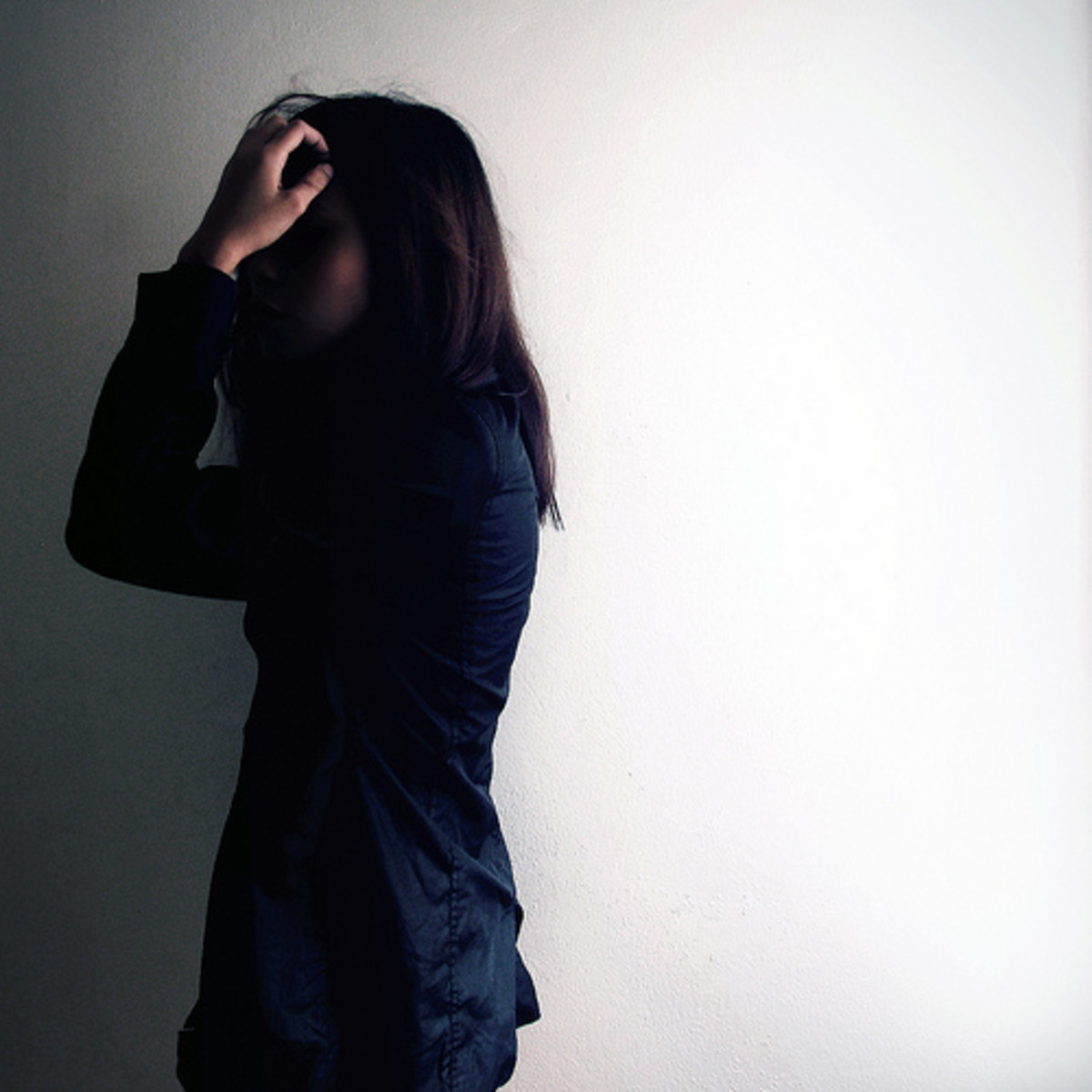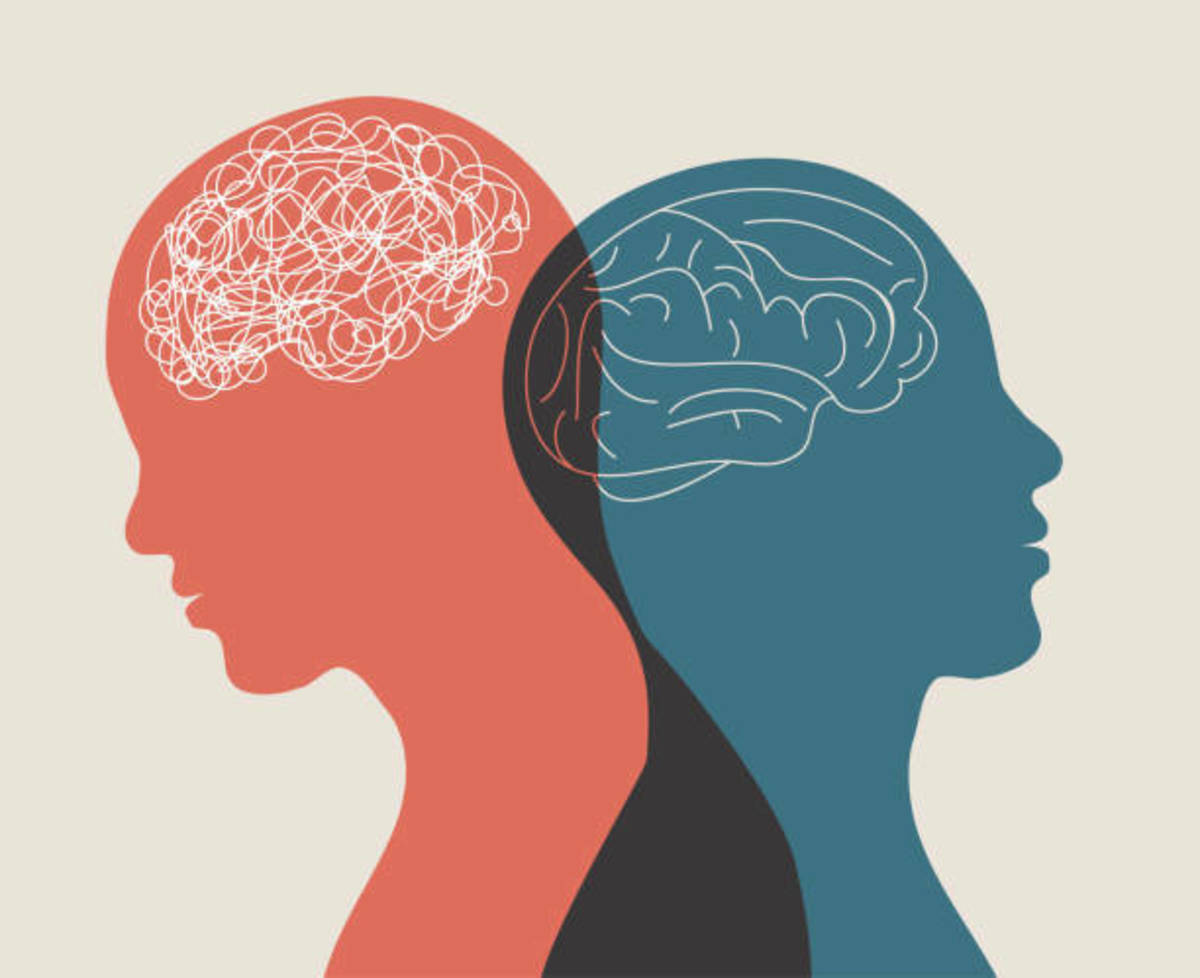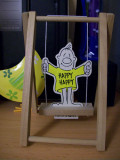Bipolar Affective Disorder - A Physiological Disease
You must also have heard about people around you who do not have consistency in their mood and behaviour. Sometimes they are very polite and generous, and at other, times they start quarrelling with everyone. Usually, people close to them also consider them to be cynical and deliberately distance themselves from them.

What is the Problem?
Actually, such people suffer from a psychological problem called bipolar affective disorder. As the name suggests, a person's mood swings in two opposite positions turn by turn. In the language of psychology such as changing mind, conditions are called episodes.
People suffering from this problem are sometimes very dormant, depressed and calm, but sometimes become overjoyed, happy and active. Actually, this unexpected change in the mood and behaviour of a person is due to this psychological problem. Now the question arises, that the problem of mood swings is there even in normal healthy people, in such a situation how to identify the patient of severe depression?
According to psychologists, the fluctuations in the mood of ordinary people are automatically cured in two-four days, but when a person stays in the same mood for more than 2 weeks even with the change in the environment , it can be a symptom of bipolar affective disorder.
Reasons for Bipolar Affective Disorder
An imbalance in brain neurotransmitters is the biggest cause of this problem. Heredity is also considered to be responsible for this. If a person has problems like thyroid, high BP and diabetes together, they sometimes have a very promptly mood swing problems, which later can turn into depression. People with alcohol or drug addiction may also have depression because these things have a negative effect on the neurotransmitters of the brain.
According to the research done by scientists, usually, people of the age group of 30 to 40 years have the highest chances of severe depression. Some women may develop this problem during menopause because during that time hormonal changes are happening in their body very rapidly.

Symptoms
According to the psychologist, it is a little difficult to identify the symptoms of this psychological problem because its people appear to have all kinds of mixed symptoms together in the form of high, low or sometimes mixed episodes. Nevertheless, it can be said that the person is very depressed and lethargic in the state of low episodes. Symptoms of loss of appetite, insomnia and no interaction with people are common. In contrast, in a high episode, the person is very excited and active, he loves to talk to people and move around. This change in mood can come in any order, that is, sometimes a high episode may come first, and then later in these three stages, there is a lot of change in the patient's eating and sleep habits also quite often.
Treatment
To overcome this problem, mood balancing medicines are given, its treatment lasts for a long time. Many times, even after a few years of perfection, a person may experience symptoms, in such a situation, he needs re-treatment and counseling, but after recovering, such people soon return to their normal routine.

How as a Family you can Support?
Family support is very important for such people if a person has such a problem then his family members should take care of these things.
- Never leave such people alone because many times, due to their mood swings, there is also the idea of suicide in their mind.
- The routine of such people should be regular so far as possible keep them away from coffee and alcohol.
- Adequate sleep is very important for such patients, so family members should keep this in mind.
- Make your home environment cheerful and always them to remain stress-free because this stress will prove very harmful for them.
- Always try to boost their morale with your positive words.
- Inspire them for their interest related work such as painting cooking and gardening etc.
- Increase your stamina. Take a little time for your happiness also because sometimes the behaviour of such people can prove to be a problem for the family.
- Do not take the words of such weak people to your heart and explain the same to your acquaintances and relatives.
- Assigned them the responsibility of small tasks and appreciate all their good efforts.
- Whenever the mood of the patient is going on in the low episode, do not interrupt too much, if they agree easily, then take him on an outing with you.
- Keep in mind that no medicine should be given to such people without the advice of the doctor, all their medicines should not be assigned to them. It should be the responsibility of one member of the family to feed the patient himself as they are given antidepressants during the treatment. The overdose of which can prove to be very harmful.
-
There should be regular yoga practice and meditation for the patient under the supervision of a skilled instructor, which keeps the mind of the sick person calm and he also gets adequate sleep as well.








